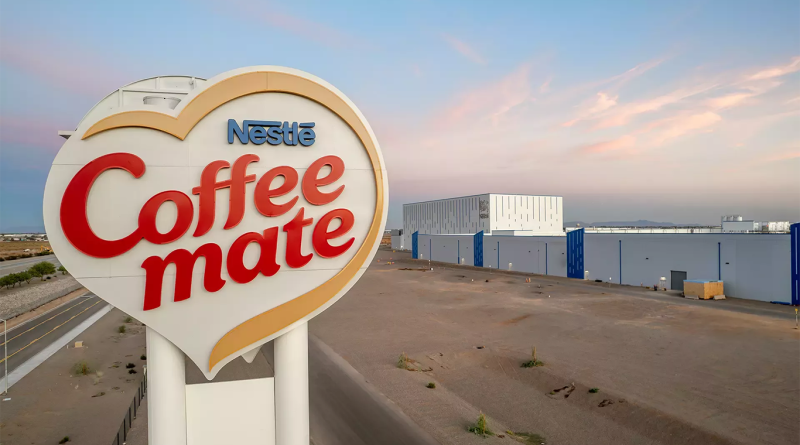Nestlé Boosts US Coffee Supply with Massive Arizona Manufacturing Hub
Nestlé USA has officially expanded its coffee manufacturing footprint with a $675 million investment in Glendale, Arizona. This state-of-the-art facility spans 630,000 square feet and is set to produce some of Nestlé’s most popular coffee products, including Coffee Mate creamers and Starbucks-branded packaged coffee. The move underscores Nestlé’s strategy to meet the rising demand for at-home coffee consumption across the US.
Nestlé’s strategic vision for US coffee production
The coffee industry has undergone a dramatic shift, with more consumers opting for premium, café-quality coffee experiences at home. Nestlé, already a market leader in refrigerated creamers, sees this as an opportunity to strengthen its position in the growing sector.
According to Daniel Jhung, president of Coffee & Beverages at Nestlé USA, consumer preferences are evolving, with greater emphasis on personalization and variety in coffee products. By expanding its production capacity, Nestlé aims to cater to these trends while driving growth in the category.
The Glendale facility will play a key role in supporting Nestlé’s existing coffee brands, including Coffee Mate, Coffee Mate Natural Bliss, and Starbucks-branded packaged coffee. Nestlé’s investment also reflects its broader ambition to optimize its supply chain and ensure faster delivery of products across the western US.
Inside Nestlé’s new Glendale facility
The new Arizona plant represents a technological leap forward for Nestlé’s coffee production. The facility features state-of-the-art automation, with advanced digital systems optimizing production efficiency. It is designed to be highly scalable, allowing for adjustments in production volumes based on consumer demand and seasonal trends.
Sustainability is a core focus of the new plant. Energy-efficient processes and water conservation initiatives have been implemented to reduce the facility’s environmental impact. Nestlé has strategically positioned the Glendale plant to enhance supply chain efficiency, cutting transportation distances to reduce both costs and emissions.
Economic and environmental impact
Nestlé’s expansion into Arizona isn’t just about coffee—it’s about boosting the local economy and contributing to job growth. The new facility is expected to generate more than 300 jobs, including roles in production, engineering, and quality control.
Beyond economic contributions, Nestlé is prioritizing sustainable practices at the Glendale facility. The plant is equipped with advanced water-reduction systems and energy-efficient equipment to support the company’s long-term environmental goals. These initiatives align with Nestlé’s commitment to achieving net-zero greenhouse gas emissions by 2050.
Nestlé’s technological advancements in coffee production
Nestlé’s investment in advanced manufacturing technology will allow the company to stay ahead of evolving consumer preferences. The Glendale facility incorporates digital tools that enable real-time production adjustments, allowing Nestlé to quickly adapt to market trends and seasonal fluctuations.
Increased automation at the plant will reduce manual labor costs while maintaining high-quality standards. Nestlé is also working toward using responsibly sourced coffee and dairy for its creamer products, further strengthening its commitment to sustainability and ethical sourcing.
With the Glendale facility, Nestlé is reinforcing its leadership position in the US coffee market, particularly in the growing segment of refrigerated creamers. This expansion also strengthens the Global Coffee Alliance, Nestlé’s partnership with Starbucks. Since acquiring the rights to market and distribute Starbucks-branded retail coffee products in 2018, Nestlé has been aggressively expanding its coffee portfolio.
Sources:
To keep up-to-date with our latest manufacturing news, subscribe to our newsletter today.
